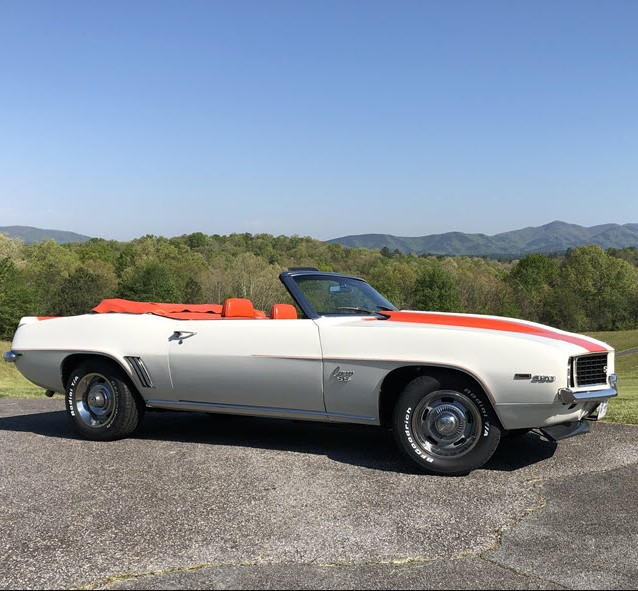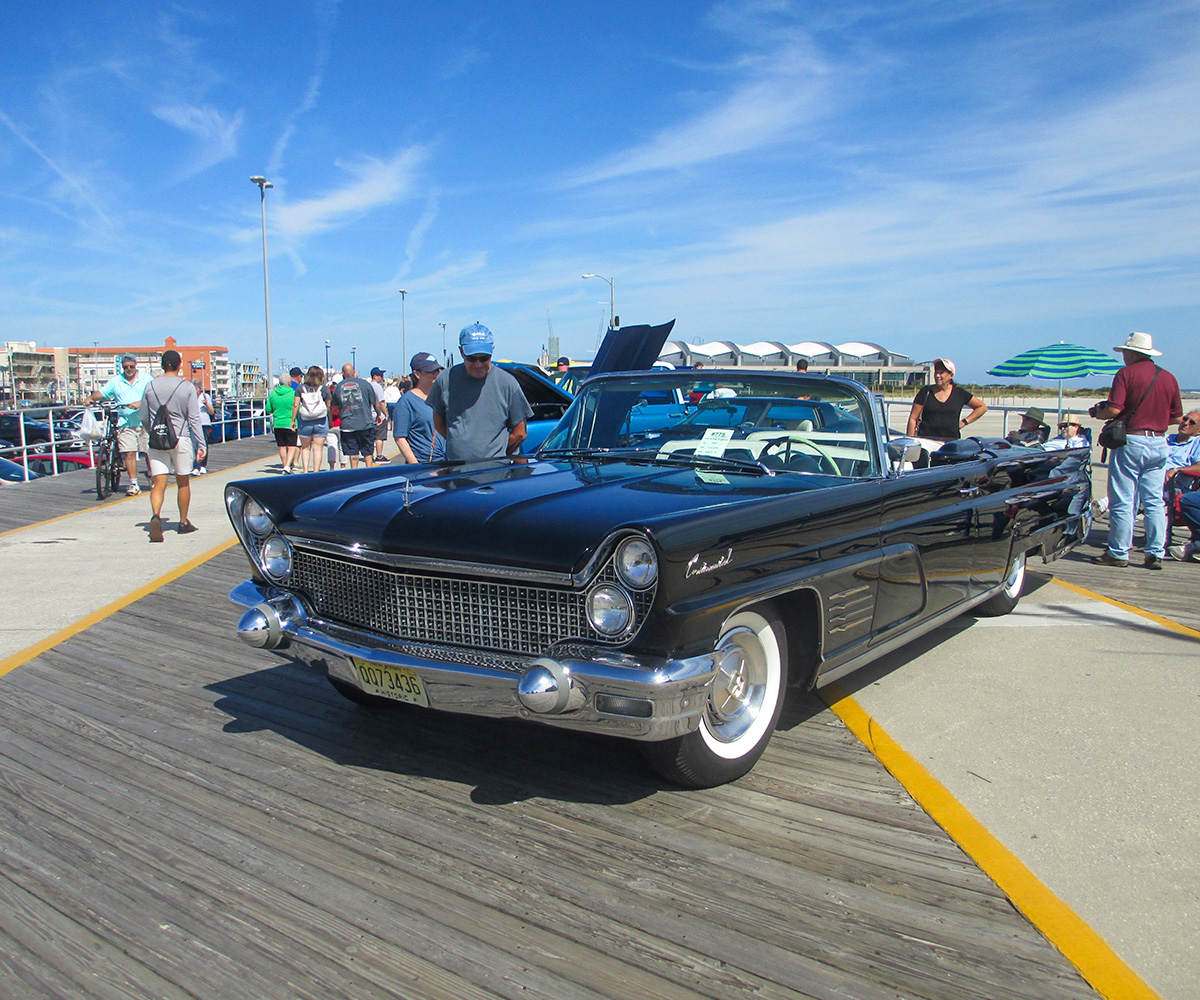Best Classic And Collector Car Insurance: Ultimate Guide
- Update Time : Thursday, September 5, 2024

The best classic and collector car insurance combines comprehensive coverage with specialized services. Hagerty and Grundy are top providers, known for their dedicated policies for classic vehicles.
Securing the right insurance for your classic or collector car is crucial to protect your investment and passion. These vehicles often require more than standard auto insurance due to their unique valuation and usage patterns. Leading insurers in this niche offer tailored coverage options, including agreed value policies, flexible usage, and coverage for spare parts and memorabilia.
It’s essential to choose a provider that understands the intricacies of classic cars and offers services like in-house claims handling and support for restoration and repair. For enthusiasts, partnering with an insurer that shares their passion for vintage vehicles can make all the difference, ensuring peace of mind while enjoying their prized possessions.

Credit: americancollectors.com
Introduction To Classic Car Insurance
Owners of classic cars have specific insurance needs. Unlike regular vehicles, these cars often increase in value over time. Their rare and historic nature demands more than standard coverage.
Collector car insurance policies offer tailored coverage. They focus on the actual value of the car. This is crucial for owners. Agreed value coverage ensures a car’s full value in case of a total loss. Mileage restrictions reflect limited use. These policies often have lower premiums. This is due to the reduced risk associated with collector cars.
| Feature | Benefit |
|---|---|
| Agreed Value Coverage | Guarantees car’s full value |
| Mileage Limitations | Lower premiums due to less use |
| Specialized Repair Options | Use of authentic parts for repairs |
| Roadside Assistance | Help tailored for classic cars |
Determining Eligibility For Collector Car Insurance
To qualify for collector car insurance, specific criteria apply. Cars often need to be older than 25 years. Some insurers set different age limits. They might cover vintage, classic, or antique models. The exact definitions can vary with each insurance company.
Usage plays a critical role in eligibility. Insured vehicles are usually for hobby or display purposes. Daily driving to work or errands is typically not allowed. Mileage restrictions are also in place. These limits ensure the car maintains its collector status. Annual mileage is often capped, with common limits being 2,500 or 5,000 miles. It’s essential to check the policy details, as these restrictions can differ.
Types Of Classic Car Insurance Coverage
Choosing the right classic car insurance is crucial. Agreed Value and Stated Value are two main types. With Agreed Value, both you and the insurer agree on the car’s value. This happens before the policy starts. If the car gets damaged, you get the agreed amount. No less.
Stated Value lets you state the car’s value. But, the insurer can pay less if the car is damaged. They pay either the stated value or the cost to fix it, whichever is lower.
Roadside Assistance and Recovery is another important coverage. It helps if your car breaks down. The insurer will send help to fix the car or tow it. This service is often available 24/7, making sure you’re never stuck for too long.

Credit: www.unruhinsurance.com
How To Choose The Right Insurer
Choosing the right insurer for your classic or collector car is crucial. Specialized insurance companies often offer plans tailored for classic cars. These plans consider the car’s unique value. General insurance companies, on the other hand, might not understand the car’s special needs. Ask yourself: Does the insurer understand what makes my car special? Look for companies with good reviews from classic car owners. They should know about car shows, restoration needs, and the true value of your ride. Customer service is key. A company that loves classic cars as much as you do will offer the best protection.
Factors Influencing Insurance Premiums
The condition and authenticity of your classic car play a pivotal role in determining your insurance premiums. Pristine, original vehicles often command higher rates due to their increased value and replacement costs. Conversely, cars with modifications or aftermarket parts may face different insurance considerations.
Security and storage are also critical factors. Insurers favor cars stored in locked garages or facilities with security systems. Such measures minimize theft and damage risks, potentially leading to lower premiums. Outdoor or public parking arrangements might increase insurance costs.
Benefits Of Joining Classic Car Clubs
Joining a classic car club comes with unique perks. Members often get exclusive insurance deals not found elsewhere. These special policies cater to the specific needs of vintage vehicles. Benefits include agreed value coverage and lower premiums.
Networking with fellow enthusiasts opens doors to a wealth of knowledge. Members share maintenance tips and restoration advice. This camaraderie can lead to discovering trusted mechanics and parts suppliers. It’s a supportive community where everyone speaks ‘car’.
Claims And Settlements For Classic Cars
Navigating the claims process for classic cars can seem daunting. Restoration and parts replacement coverage are vital aspects. Filing a claim requires some steps. First, report the incident to your insurer. Provide all necessary details about the damage. Your insurance company will then assess the claim. They might ask for photos or to see the car in person.
For restoration, insurers often work with specialists. These experts ensure your classic car retains its value. The right parts are crucial for classic cars. Your policy should cover genuine parts replacement. This keeps your car authentic. Always check your policy for specifics on parts and restoration coverage. This will help you understand what’s covered before you need it.
Maintaining Your Collector Car Insurance
To keep your collector car insurance valid, consider regular appraisals. The car’s value can change. These changes need recording. An updated policy reflects the current market value. This protects your investment.
Documenting maintenance and upgrades is key. Keep receipts and records. These prove the car’s condition and value. They are useful for insurance claims. A well-maintained car can have a higher value. Make sure your policy reflects this.
| Maintenance | Upgrade | Documentation |
|---|---|---|
| Oil Change | New Engine | Receipts |
| Tire Rotation | Custom Paint | Photos |
| Brake Check | Audio System | Service Records |
Classic Car Insurance Vs. Regular Auto Insurance
Specialist classic car insurance caters to unique needs of collectible vehicles, distinct from regular auto policies. These needs often include specialized repair and replacement parts. Standard policies may not cover these specifics.
Collector cars often appreciate in value, unlike modern cars which depreciate. Insurance for classic cars generally agrees upon a vehicle’s value before a loss occurs. This agreement ensures owners receive the full value without depreciation. Regular policies calculate the current market value after a loss, which can be significantly lower. Therefore, classic car owners may find standard insurance insufficient for their prized possessions.
Preventive Measures To Protect Your Investment
Protecting your classic or collector car from theft is essential. Always lock your vehicle, even when parked at home. Consider installing a state-of-the-art alarm system to deter thieves. Make sure to keep your car keys secure and out of sight.
For seasonal and long-term storage, select a secure, climate-controlled facility. Use a quality car cover to shield your vehicle from dust and moisture. Disconnect the battery to prevent drain. Regularly check on your car during storage.
| Theft Prevention | Storage Advice |
|---|---|
| Use steering wheel locks | Keep tires inflated |
| Install GPS trackers | Change fluids before storage |
Resources For Classic Car Owners
Classic car owners often seek advice and knowledge. Online forums provide a platform to share experiences and find solutions to common problems. Communities like the Antique Automobile Club of America and The Classic Car Club of America host forums where enthusiasts discuss maintenance, restoration, and events.
For deeper insights, books and magazines are invaluable. Titles like Classic Car Weekly and Hemmings Motor News offer articles, reviews, and market trends. They serve as a bridge between past automotive triumphs and current ownership joys.

Credit: americancollectors.com
Frequently Asked Questions
What Defines Classic Car Insurance?
Classic car insurance is tailored for vehicles considered collectible or vintage. It typically offers specialized coverage options. These include agreed value policies and protection during restoration. Insurers often have specific requirements for a car to qualify, like its age or usage restrictions.
How Does Collector Car Insurance Differ From Standard?
Collector car insurance focuses on the unique needs of vintage and collectible vehicles. Unlike standard insurance, it often includes agreed value coverage, lower premiums, and stipulations for vehicle storage and mileage. It’s designed for cars that appreciate in value over time.
What Factors Affect Classic Car Insurance Rates?
Rates for classic car insurance are influenced by the vehicle’s age, model, condition, and rarity. Additional factors include the owner’s driving history, storage conditions, and how often the car is driven. Insurers also consider if the vehicle is used for shows or events.
Can Modifications Impact Classic Car Insurance?
Yes, modifications can impact classic car insurance. Authentic restorations may increase a vehicle’s value and coverage needs. However, modern modifications could raise insurance costs or complicate coverage due to alterations from the car’s original state. Disclosure of all modifications is crucial for accurate coverage.
Conclusion
Navigating the realm of classic and collector car insurance can be daunting. Yet, choosing the right policy safeguards your treasured vehicle. Remember, the best insurance balances comprehensive coverage, tailored services, and competitive pricing. Protect your automotive investment with care and ensure peace of mind on every journey.
Choose wisely, drive safely, and enjoy the timeless joy of classic car ownership.

















Leave a Reply